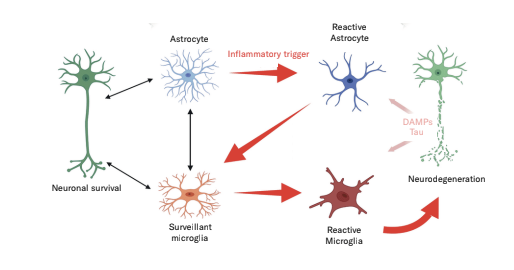The interplay between the immune and nervous systems is a critical aspect of various neurodegenerative diseases (NDD), but the development of physiologically relevant models mimicking the intercellular interactions remains a challenge. To overcome this, human induced pluripotent stem cell technology can be leveraged to build multicellular models and bring human pathophysiology into early drug discovery to develop new therapeutics targeting neuroinflammation.
The development and validation of models of relevant biological disease processes, such as microglia-neuron communication provides insight on cellular interactions that play a role in recognizing apoptotic neurons and modulating neuronal activity which are crucial events in disease progression. Targeting these pathways in human models with a combination of readouts allows interrogation and evaluation of the ability of therapeutics on rescuing primary, secondary and tertiary neuro-pathological signatures.
In this study, Ncardia used the tri-culture approach to developed an in vitro, iPSC-derived tauopathy assay by inducing phosphorylation (phospho-Tau) and aregation of Tau, with recombinant mutant Tau PFFs (pre-formed fibrils) and Tau seeds extracted from AD patient brain tissue. This approach enabled a multi-parametric readout of neuronal and glial phenotypes including activation of microglia and astrocytes in the tri-culture.
Download the poster by filling the form below:

